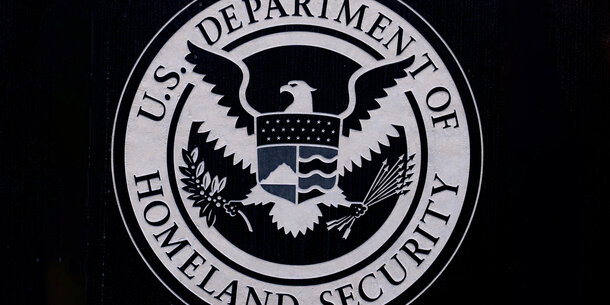You’re reading The Briefing, Michael Waldman’s weekly newsletter. Click here to receive it in your inbox.
This week, masked and heavily armed National Guard members and federal immigration agents swept through MacArthur Park in Los Angeles. “They came with horses and armored vehicles,” journalists reported, “carrying rifles and in tactical gear in the middle of what is the heart of immigrant Los Angeles.” Mayor Karen Bass decried the assault. “It’s the way a city looks before a coup.”
This followed last week’s presidential visit to what officials call “Alligator Alcatraz.” It is a camp to . . . ahem, concentrate people who are detained as part of immigration proceedings. White House press secretary Karoline Leavitt crowed, “It is isolated and surrounded by dangerous wildlife and unforgiving terrain.” All the more difficult to consult a lawyer or pursue due process.
This is a summer of brute force and performative cruelty.
And now a chilling fact sinks in: The new budget law includes $150 billion for immigration detention, border security, and enforcement. There is no precedent in peacetime history for such a massive increase in the security services in the United States. As my colleague Lauren-Brooke Eisen describes, “The bill funds a giant immigration detention apparatus that would likely be difficult to dismantle under future presidents.”
U.S. Immigration and Customs Enforcement will now be the biggest federal law enforcement agency, by far. Its budget will exceed that of the FBI, Drug Enforcement Administration, and U.S. Marshals Service combined. (It even has a bigger budget than the militaries of Brazil, Italy, and Israel.)
It will require a crash hiring spree for new ICE agents, with little training and oversight. Federal and local law enforcement officials will be pulled off their core duties in massive numbers to play the unfamiliar role of immigration enforcer. All this for an agency whose agents wear masks to avoid identification while grabbing people off the street, arresting political leaders, and choosing to sow terror.
And for all the claims that only the “worst of the worst” will be targeted, enforcement seems increasingly to be focused more on construction workers and landscapers with no criminal history than on drug traffickers or sex offenders.
Then there is the troublesome role for private prisons. Many of the new facilities will be built and run by private firms. Eisen is the author of the definitive book, Inside Private Prisons. She reports, “In May, the CEO of private prison company CoreCivic told investors, ‘Never in our 42-year company history have we had so much activity and demand for our services as we are seeing right now.’ This budget bill will solidify that vision for CoreCivic, GEO Group, and other firms that manage and own immigrant detention centers and transportation subsidiaries.”
The administration has rebuffed oversight by Congress. Federal law says that members of Congress and their staffs must be permitted to “enter[], for the purpose of conducting oversight, any facility operated by or for the Department of Homeland Security used to detain or otherwise house aliens.” ICE is throwing up barriers and in some cases denying access outright.
And of course, the Brennan Center has documented the ways this current crackdown is being pursued in violation of the law. The misuse of the Alien Enemies Act, a discredited wartime statute the administration has used to deport migrants, is a vivid example.
Americans hold deeply conflicted views. We are a nation of immigrants and a nation of laws. Americans want an orderly immigration system with appropriate enforcement. Scenes of chaos at the border provoke backlash, in the United States as in other countries. These were central to Donald Trump’s victory, with his growing support in many immigrant communities. They fueled xenophobic and racist false claims of widespread crime by migrants.
But many Americans still recoil from the ugly turn in the deportation drive. White House aide Stephen Miller has raged against the failure of immigration agents to arrest and deport more people. Hence the turn toward detaining — and terrorizing — immigrant families, many of whom have lived here for years, worked hard, paid taxes, and raised families. A callous disregard for children is a feature of Miller’s approach.
For decades, policymakers have postponed immigration reform. Its elements — strong border security, a path to citizenship, expanded legal immigration, fixing the broken asylum system — are unchanged. They once enjoyed bipartisan support. The political pendulum may swing again. But long after this administration is gone, the swollen and ominous enforcement apparatus will remain. Threats to civil liberties typically come during wartime. This time, we will have to restore the rule of law after a war on our communities.



